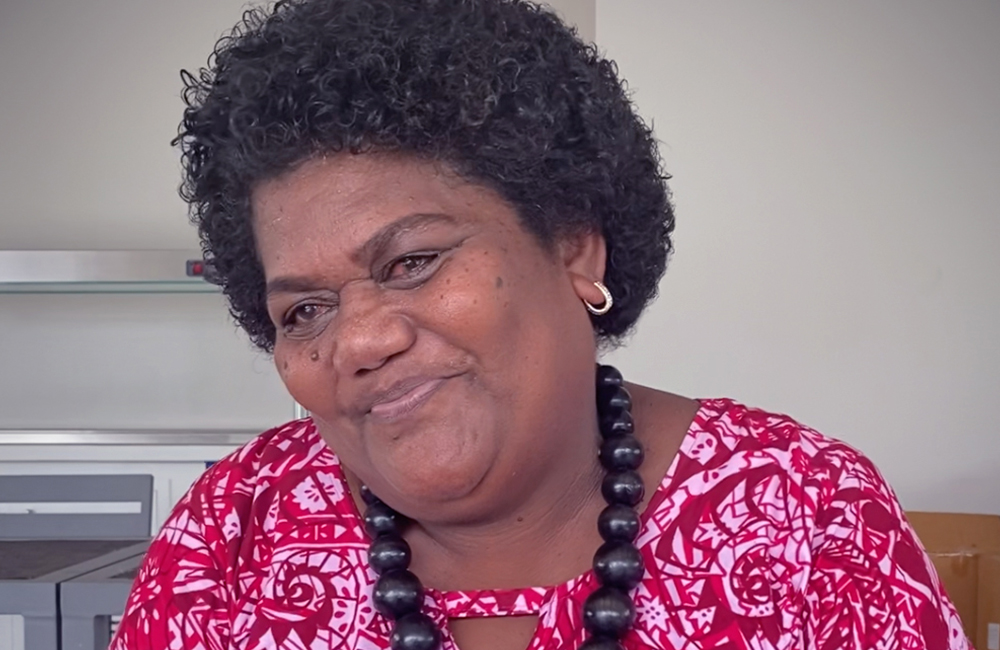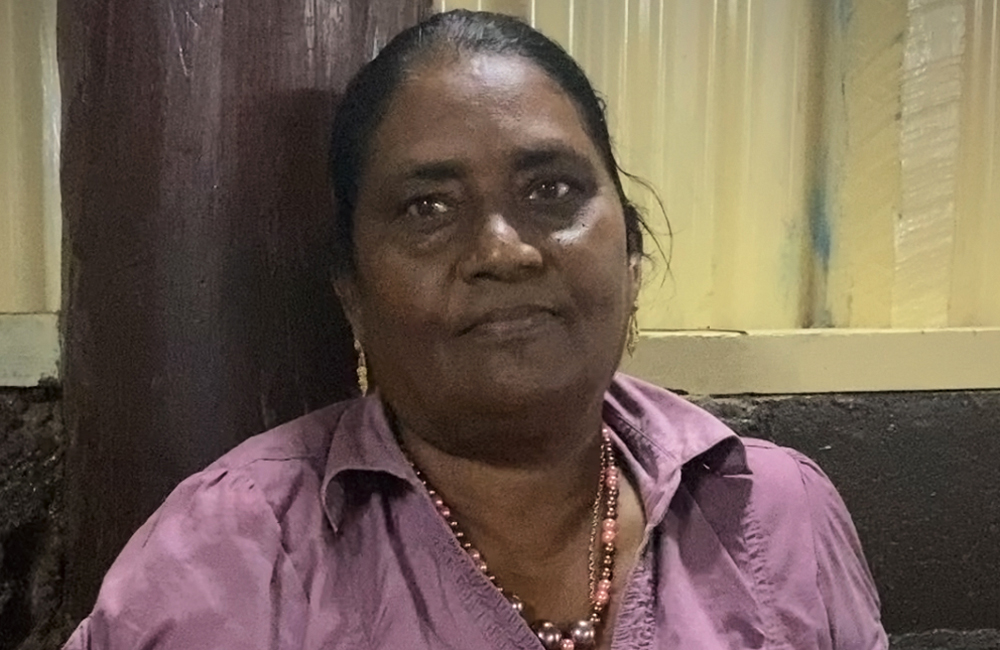Empowering Fijian Families through the Pandemic
Communities across Fiji are well-versed when it comes to preparing for disasters. In 2020 alone, two tropical cyclones bore down on the island nation causing widespread damage, and affecting livelihoods, access to services, and children’s education. Yet families have become incredibly resilient, knowing how to both brace for the storm and what is needed to quickly recover from the disaster.
The COVID-19 pandemic, however, has caused an unprecedented and ongoing emergency in Fiji that communities are struggling to bounce back from. While there have only been a handful of COVID-19 cases recorded in Fiji, border closures have dramatically impacted the tourism industry, leaving entire communities unable to provide for their families.
To combat the devastating effect COVID-19 is having on the Fijian economy, Save the Children, along with Vodafone and the Fijian Council of Social Services (FCOSS), has launched the a program to reach more than 19,000 households with digital cash transfers. Money received by vulnerable communities can be used to meet basic needs and help them get through this period before tourism begins again.
“We have always prepared for disaster,” said Van, the Chair of the Ba district council of social services, which sits under FCOSS, “But with COVID, the economic situation dropped, and redundancies happened… and now there is still a toll. We have been resilient in other disasters… two days after cleaning up we are ready to stand again. But COVID came as a surprise.”
“Because most of the community live in Nadi, when COVID came in, all the hotels and the airports were closing down so everybody came back to the communities, and now we have a lot of extended households in our area, so we need to cater to bigger families.”

Van, is the Chair of the Ba district council of social services. Nash Rudinmodin/Save the Children
In December, Van attended a training conducted by Save the Children, designed to support local staff from our partner organisations to develop skills they require to identify the people in the greatest need and to roll out the digital cash program. “I have learnt a lot in the training; this cash program is totally new to me.” She said, “We need a lot of dedication, and to be fair, honest, and transparent with the community. We need to be accountable to the organisation. One thing I have learned is that most things are on a national or regional level. We are so happy that this program is localising, it has really touched the people on the ground.”
Shakulta is from Lautoka District Council of Social Services, and also attended training sessions run by Save the Children. She explains the impact of COVID-19 in her community: “Our economy is mostly dependent on tourism, and this sector is really closed down due to COVID 19. In my community there are a lot of people directly connected to tourism, hotel workers and aviation workers, they have been affected because there was complete shut down and they have lost their jobs or were working on reduced hours.
“Their lives have changed mainly through their food, they used to have three meals a day now some of them have dropped to one, some families are malnourished now. It’s all related; economical loss is related to health effects, access to services, education, health, and food security.”

Shakulta, from Lautoka District Council of Social Services, attended training sessions run by Save the Children. Nash Rudinmodin/Save the Children
Save the Children has traditionally distributed goods such as food, blankets, and shelter kits as part of our emergency responses. While there is still a place for this sort of support, over the years we have realised that cash is both faster and gives greater flexibility. And cash distributed via mobile phones is even faster. Shakulta explained:
“For Cyclone Winston it took about two months to do the survey, and get the data, and send it to the authorities when there was a government system for supplying the goods. Getting the material rations packed up… but this money system is good. People will buy their own basic needs - what they need in their own family, and what they will benefit from at the right time.
“Up until now, people would line up in a queue to receive a cash package – it was different to what we are doing here now. This is a more effective and efficient way of giving money to beneficiaries.
“I feel good about using new technologies. I know that we are doing something better for the community. This is the first time ever we have seen cash given to beneficiaries who are really in need who are vulnerable in the community. Thank you so much, we appreciate your contribution towards our country. You will make the people’s livelihoods better.”